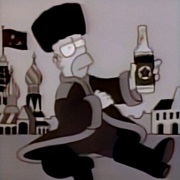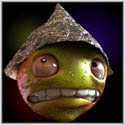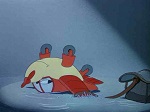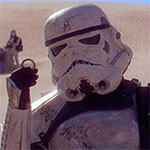|
StrixNebulosa posted:I thought I read somewhere that his scholarship wasn't very good, especially with his work on Stalin? Can someone confirm/deny? I mean, it's pop history with all that entails. It's written to be entertaining more than anything else. His work barely gets reviewed in academic journals and when it does people are not always kind. Here's a review of The Romanovs from one of the better journals on the late imperial period (I'll provide excerpts since the review is paywalled): Paul de Quenoy in the journal "Revolutionary Russia" vol. 29, no. 2 (2016), pp. 244-246. posted:[...] Or here's another academic reviewing his earlier work on Stalin: Golfo Alexopolous in the Journal of Cold War Studies vol. 10, no. 1 (2008) posted:[...] If that's what you're after, by all means enjoy, he's a talented writer and non-academic reviews reflect that and respond positively because the people writing them tend not to have the level of knowledge academic historians have, so the easy-to-read writing and compelling storytelling wins them over without their being thrown off by factual errors or strange choices of focus. Falukorv posted:Well my historical curiosity is pretty broad but from the early modern tsardom through becoming a major european power up until the social upheavels that ended the Russian Empire. A period of 500 years but for now im looking for a pretty general history grounded on good scholarship. Kind of like what Clarks "Iron Kingdom" did for Prussia. Some specific topics also interest me, for example Russias expansion into Siberia and Central Asia and how those areas came under the influence of Russia and how they interacted with the people there. That's still a huge question lol, but I think something you might be interested in is Russia's Empires by Valerie Kivelson and Ronald Grigor Suny. It's a book on the history of Russian empire from Kievan Rus to Putin, so it covers those hundreds of years of history with a particular focus on imperial expansion and management, but also by necessity talking about internal dynamics. The authors are two of the best scholars of Russian empire in the early modern and revolutionary periods, respectively, and the book is targeted at undergraduate readers so it's based on solid scholarship and a high degree of expertise but is written to be accessible to readers without a high level of prior knowledge. vyelkin fucked around with this message at 19:07 on Jun 4, 2020 |
|
|
|

|
| # ? Apr 27, 2024 02:05 |
|
Alright, so it sounds like it's in the Guns of August camp. Good for enjoying history (so to speak) but trust the academic takes on the subject more than those books. I'm down with that.
|
|
|
|
vyelkin posted:I can only repeat my suggestions from last time: Oh yeah, that was def's not me bashing your suggestions, I'm working my way through Elusive Empire right now and it is awesome.
|
|
|
|
I can second Russia's Empires as a good read.
|
|
|
|
Thank you! Russias Empires seems like a good fit to begin with, i think im going to order it.
|
|
|
|
Way back in the day we used Riasonovsky's A History of Russia (now authored by Steinberg since R's death) and so far as I can see it's still the state of the art, single-volume history of Russia from Kievan Rus to Putin(?- Latest publication date shows as 2018 on Amazon). Anyway, given your request I'm surprised no one else has mentioned it - maybe it's an issue of cost (f'ing pricy).
|
|
|
|
geegee posted:Way back in the day we used Riasonovsky's A History of Russia (now authored by Steinberg since R's death) and so far as I can see it's still the state of the art, single-volume history of Russia from Kievan Rus to Putin(?- Latest publication date shows as 2018 on Amazon). Anyway, given your request I'm surprised no one else has mentioned it - maybe it's an issue of cost (f'ing pricy). Yeah this is my go-to Russia book actually, I have an ancient copy from when my mom was in Uni. If you want an overall survey this is an excellent choice.
|
|
|
|
geegee posted:Way back in the day we used Riasonovsky's A History of Russia (now authored by Steinberg since R's death) and so far as I can see it's still the state of the art, single-volume history of Russia from Kievan Rus to Putin(?- Latest publication date shows as 2018 on Amazon). Anyway, given your request I'm surprised no one else has mentioned it - maybe it's an issue of cost (f'ing pricy). imo it's the best one-volume survey of Russian history, and Steinberg's been very good at continuously updating it, each new edition actually does tend to have significant improvements from the last (back when it was just Riasanovsky, for example, it was really heavy on politics and intellectual history, and Steinberg has basically rewritten it to centre social and cultural history just as much). I tend not to recommend it in this thread just because it's very much a textbook aimed at students (and is priced accordingly), and I tend to assume people coming to this thread are usually a little less interested in pricy textbooks and a little more interested in other stuff. It's also one of those big-survey books that covers pre-Kievan Rus all the way to Putin and trying to cover all of Russian history with internal politics and change, external politics and foreign affairs, society, culture, empire, etc., etc., so I tend not to recommend it when people want something more specific in time period or thematic focus. But yeah if you just want one book that will tell you what happened in Russia for the last thousand-plus years that's the one I would choose.
|
|
|
|
I'd actually be down for more textbook recs, prices be damned. Knowing which ones are the recommended ones is extremely valuable as a layperson who isn't likely to take history classes anytime soon. Also they make for fun xmas gifts to put on my wishlist!
|
|
|
|
Conversely are there any books that cover an overview of Post Napoleonic 19th century France that aren’t just some 200 page textbook that costs $70?
|
|
|
|
Any good general history on the Reformation? I'm interested in how it started and the consequences specifically. I don't know much about it besides Martin Luther nailing the thing to the door.
|
|
|
|
HamsterPolice posted:Any good general history on the Reformation? I'm interested in how it started and the consequences specifically. I don't know much about it besides Martin Luther nailing the thing to the door.
|
|
|
|
I've just finished the last of Hillary Mantel's Cromwell trilogy and was interested in the reformation too, so thanks!
|
|
|
|
Any good books on post-Napoleon France? Wanna read about the bourbon restoration
|
|
|
|
How does Rick Atkinson's The British Are Coming compare with McCullough's 1776?
|
|
|
|
Karenina posted:what are some good books to read on historiography? I still think E.H Carr's What Is History? is worth a read. It was published in 1961, but it gives you an idea of how historians' understanding of history has evolved over time, which is one way to get a handle on how historiography has developed. Lynn's book the vyelkin recommended is also good. After that maybe Hayden White's Metahistory and Richard Evans' In Defense of History if you want to get a glimpse at the impact of and reaction to postmodern theory on historical writing and thought. There's probably good books about more recent trends that I'm not aware of, but I've been out of academia for four years. A lot of good historiographical texts tend to focus on particular national histories and fields. For example, there's Tim Cook's great book on military historical writing in Canada during the 20th century, or more broadly Contesting Clio's Craft which is a good edited collection that focused on a range of issues from periodization to the impact of recent theoretical turns (cultural, linguistic) on metanarrative history, to "hey maybe we should remember that British Empire was Good, actually." Okay that last one is pretty weird. If either of those examples sound eclectic, well they are, but that's because a lot of historians burrow down into their own field and subject matter when it comes to historiography because that's what they're most familiar with.
|
|
|
|
Dreylad posted:I still think E.H Carr's What Is History? is worth a read. It was published in 1961, but it gives you an idea of how historians' understanding of history has evolved over time, which is one way to get a handle on how historiography has developed. What Is History is a very strange book in a lot of ways. I've seen it argued that it's really a roundabout apologia for Stalinism, and I can understand why (e.g., Carr's view, if I understand him correctly, that historians can and should make value judgments about whether something is "progressive," but not about whether it's "moral," and even his quoting of Stalin and Mao as though they were philosophers). Despite this, I think it has a lot of interesting and even valuable ideas (e.g., the distinction between a "fact about the past" and a "fact of history"), and it's provoked some interesting responses (e.g., the pushback against Carr's opposition to counterfactuals).
|
|
|
|
Silver2195 posted:What Is History is a very strange book in a lot of ways. I've seen it argued that it's really a roundabout apologia for Stalinism, and I can understand why (e.g., Carr's view, if I understand him correctly, that historians can and should make value judgments about whether something is "progressive," but not about whether it's "moral," and even his quoting of Stalin and Mao as though they were philosophers). Despite this, I think it has a lot of interesting and even valuable ideas (e.g., the distinction between a "fact about the past" and a "fact of history"), and it's provoked some interesting responses (e.g., the pushback against Carr's opposition to counterfactuals). Yeah, to be clear I'm not recommending that book because I 100% align with Carr, but more that it's a good springboard for thinking about what history and historical writing is and should be. That reminds me, on the subject of morality and historians, James Axtell's "The Moral Dimensions of 1492" is pretty good primer on that subject, and even if you disagree with the framework Axtell presents it tends to spark some good debate.
|
|
|
|
I'm still brewing on a post but I will say that I think Carr was right about counterfactuals and that his beliefs about them are still totally dominant in the academy, but people do quite enjoy writing articles about how we shouldn't be too elitist about it.
|
|
|
|
|
Disinterested posted:I'm still brewing on a post but I will say that I think Carr was right about counterfactuals and that his beliefs about them are still totally dominant in the academy, but people do quite enjoy writing articles about how we shouldn't be too elitist about it. Don't meaningful statements about causation usually involve implicit counterfactuals? Obviously professional historians shouldn't be devoting their time to writing alternate history novels, but I don't think it's always wrong for them to make those counterfactuals explicit.
|
|
|
|
Silver2195 posted:Don't meaningful statements about causation usually involve implicit counterfactuals? Obviously professional historians shouldn't be devoting their time to writing alternate history novels, but I don't think it's always wrong for them to make those counterfactuals explicit. The general argument starting with Carr and carrying on to recent historiography is that historians shouldn't concern themselves with speculation, but concern themselves with what did happen and why.
|
|
|
|
Dreylad posted:The general argument starting with Carr and carrying on to recent historiography is that historians shouldn't concern themselves with speculation, but concern themselves with what did happen and why. I'm saying that the "why" usually at least suggests a counterfactual; to say that X was the main cause of Y can reasonably be taken to imply that if X hadn't happened, all else being equal, Y wouldn't have happened either.
|
|
|
|
Silver2195 posted:What Is History is a very strange book in a lot of ways. I've seen it argued that it's really a roundabout apologia for Stalinism, and I can understand why (e.g., Carr's view, if I understand him correctly, that historians can and should make value judgments about whether something is "progressive," but not about whether it's "moral," and even his quoting of Stalin and Mao as though they were philosophers). Despite this, I think it has a lot of interesting and even valuable ideas (e.g., the distinction between a "fact about the past" and a "fact of history"), and it's provoked some interesting responses (e.g., the pushback against Carr's opposition to counterfactuals). Mao wrote a fair bit of philosophical stuff so I don't know why that's weird specifically.
|
|
|
Silver2195 posted:I'm saying that the "why" usually at least suggests a counterfactual; to say that X was the main cause of Y can reasonably be taken to imply that if X hadn't happened, all else being equal, Y wouldn't have happened either. While this thought has some value to it, the imaginative act the historian has to begin to spin out of whole cloth explodes in scale if you dwell on it for any length of time. A commonly cited example of a really wrong-headed way of doing history in this vein is The Pity of War which is essentially Niall Ferguson's vehicle for thinking out loud about how good it would be if Britain hadn't entered the first world war and been able to retain its empire for longer. The other issue is that history should probably not be formulated in the way you're describing in too strong of a way, in that in reality you're usually describing a huge and complex nexus of causation that's extremely multifactoral and difficult to tie down with any certainty. I'm quoting the below: quote:"Counterfactuals", as such "what-if" speculations are generally termed by the aficionados, are often claimed to open up the past by demonstrating the myriad possibilities, thus freeing history from the straitjacket of determinism and restoring agency to the people. But in fact they imprison the past in an even tighter web: one tiny change in the timeline – Archduke Franz Ferdinand escapes assassination in Sarajevo, the British cabinet decides not to enter the war – leads inevitably to a whole series of much larger changes, sometimes stretching over decades almost up to the present day. Yet this ignores, of course, an infinite number of chances that might have deflected the predicted course of events along the way – Franz Ferdinand might have fallen victim to another assassin's bullet, or died in a hunting accident; Britain might have entered the war later on; the US might have come into the conflict on the side of the French; Austria-Hungary might have collapsed in the face of nationalist revolts; and so on. For a brief discussion of the problems that tend to come up, see: https://www.theguardian.com/books/2014/mar/13/counterfactual-history-what-if-waste-of-time Disinterested fucked around with this message at 11:06 on Jun 11, 2020 |
|
|
|
|
There's a very interesting discussion in the most recent issue of a journal in my field, with several esteemed historians discussing counterfactuals of the Russian Revolution and Civil War: https://www.tandfonline.com/toc/frvr20/current Obviously it's too much for me to excerpt for people without institutional access, the forum is something like 50 pages long. But to my reading, most of it boils down to "there are very good reasons why history happened the way it did, and at each potential 'turning point' there are very good reasons why history turned in the way it did instead of a different way". The counterfactuals of this period at least often boil down to wishful thinking about "what if all the people involved had actually been different people who thought and acted completely differently" and once you get to that level of counterfactual you're basically ignoring any relationship to real history. Like, the Bolsheviks won the Civil War not from some fluke of luck and historical whimsy that could have gone the other way, but because they were better-organized and had a far deeper base of warmaking capacity than their opponents, and no reasonable counterfactual is going to be able to say "What if the Whites had won?" without ignoring all of that. Here's one good excerpt that I think aptly illustrates this: Jonathan D. Smele posted:If the farcical fate of the Constituent Assembly was pre-ordained long before its meeting in January 1918, and the post-October coalition negotiations were similarly stillborn, might a more successful proffering of a socialist alternative to Bolshevism have been made by the SRs and Mensheviks prior to October? Given what was to ensue, those parties clearly should not, for example, have voted down but voted in favour of Julius Martov’s resolution to the Soviet Central Executive Committee on 4 July 1917 advocating an all-Socialist government.87 That would have saved them from further costly, reputation-shredding association with Kerensky and the flailing Provisional Government, as it postponed land reform and stumbled from the shocks of opening a breach with the Ukrainian Rada and the July Days, through the disastrous Kornilov Affair towards the regime’s October dénouement. Even here, though, one can sense the whiskers of wishful thinking sprouting luxuriously (on Grandma and hirsute historians alike), as most mainstream SRs and Mensheviks had many (what seemed to them) utterly convincing reasons for not voting in favour of Martov’s resolution: Petrograd was not Russia and Russia was not ready for socialism; they were not organizationally prepared to lead it towards socialism; the Allies and the command of the Russian Army would oppose such a government; etc. On every point they were probably right. Only hindsight would convince some that they should nevertheless have tried and should have supported Martov. As for the option sometimes suggested of the moderate socialists insisting upon summoning a constituent assembly much earlier, rather than accepting the Kerensky government’s repeated postponement of elections, there were, again, solid reasons for why the SRs and Mensheviks acted as they did: Russia had nothing to compare with the experience in democracy, civil association, and public politics that, for example, pump-primed the summoning of a constitutional assembly at Weimar within two months of the German Revolution;88 and the Kadets, whom most SRs and Mensheviks believed were essential to the success of any Petrograd government being able to hold its own against the Allies and the generals, were in control of the electoral commission for the Constituent Assembly and had their own reasons for delaying the elections (notably, fear of the disruption a national vote would cause if it were to be held during potentially active periods on the front).89 The subsequently signposted ‘forks in the road’ of 1917-18, therefore, were regarded as uninviting and potentially hazardous dead ends by those taking decisions at the time Hindsight inspires us to think counterfactually and say "oh but what if the socialists had acted differently in 1917 and spared us from the disasters of Kerensky and Lenin?" but historical thinking about what those socialists were actually thinking to themselves and saying to others at the time leads us to realize that there was never much of a chance of that happening because at every potential turning point they had very good reasons for not choosing a path different from the one they actually chose. Counterfactuals can be a useful tool and thought experiment, but mostly because they lead us to thinking about why they didn't happen, which helps us understand why what actually happened did happen. If you explore counterfactuals for the Russian Revolution and Civil Wars, as the above forum does, what it mostly reinforces for you is the reasons why history did unfold the way it did, rather than offering a branching tree of other potential outcomes, because it turns out that, as improbable as the real outcome may have been, any other outcomes were even less likely.
|
|
|
|
Cyrano4747 posted:Unfortunately it’s a bit hard to find books like what Ambrose did. He’s really pretty unique in doing a deep dive on an individual unit where he focuses on the soldiers as personalities rather then the unit. I have a ton of issues with his work but if you want something like BoB there’s really just BoB. In a lot of ways it’s also the most notable of his books and, I would argue, the only one that really made a dent in the literature behind pop history book sales. (Edit: and even that is methodological and not in his argument) Thanks for this. It's a pity Ambrose wasn't a more careful historian. If he'd managed to weave the personal accounts of the unit members together with documentary evidence and interviews with men from outside the unit he could've made something that would've been good history as well as entertaining. I'm reminded a goon in here wrote a book about a mercenary company involved in the Thirty Years' War that did integrate all the evidence in that kind of fashion, albeit he or she didn't have access to the original unit members - it was pretty good.
|
|
|
|
What's the book's title?
|
|
|
|
Mantis42 posted:What's the book's title?
|
|
|
|
Neurosis posted:I'm reminded a goon in here wrote a book about a mercenary company involved in the Thirty Years' War that did integrate all the evidence in that kind of fashion, albeit he or she didn't have access to the original unit members - it was pretty good. I think you're thinking of HEY GUNS in the A/T military history thread. He's doing (did?) his PhD on them and plans to turn it into a book. Interesting posts.
|
|
|
|
He has a manuscript of the book if I recall.
|
|
|
|
Are there recommendations for a history of modern Israel?
|
|
|
|
Hyrax Attack! posted:Are there recommendations for a history of modern Israel? So, this question is always a can of worms, because everybody's got an opinion on Israel, but you might want to try Martin Gilbert's "Israel: A History"
|
|
|
|
Neurosis posted:Thanks for this. It's a pity Ambrose wasn't a more careful historian. If he'd managed to weave the personal accounts of the unit members together with documentary evidence and interviews with men from outside the unit he could've made something that would've been good history as well as entertaining. If you don't care too much about which nation you're reading about, I can highly, highly recommend Tim Cook's (not the Apple guy) two-volume series on the history of the Canadian Expeditionary Forces during the First World War, At The Sharp End and Shock Troops. Cook is a very good writer, uses letters, memoirs, and interviews from Canadian soldiers to emphasize the human aspect of soldiering and even went so far as to recreate every battle from primary sources instead of relying on the official histories that were written after the war. They don't quite capture the feeling of focusing on one unit, although the Canadians were pretty much self-contained in four divisions that trained and fought together throughout the war, but they're still a pair of excellent books by arguably Canada's best military historian.
|
|
|
|
Epicurius posted:So, this question is always a can of worms, because everybody's got an opinion on Israel, but you might want to try Martin Gilbert's "Israel: A History" Thanks! Yeah mostly just want to know what was going on since the 1940s without reading Wikipedia. Understood there are strong opinions, but need at least a general background.
|
|
|
|
You can see a lot of the main debates in the historiography outlined from a revisionist perspective in 'Israel and Palestine: Reappraisals, Revisions, Refutations' by Avi Shlaim.
|
|
|
|
|
I'm almost done with Johnathan Parshall's book Shattered Sword (it's really great and I can't recommend it enough) and in the conclusions he references the Battle of Tsushima heavily in the lessons Japan learned in naval warfare. What books (audiobooks preferred) would be best for someone very new to the Russo-Japanese war and Tsushima specifically, to start with?
|
|
|
|
Any recommendations for a book on the French Revolution? Covering like the decade before it and the aftermath up until the Napoleonic era.
|
|
|
|
Quoting from last page:Shimrra Jamaane posted:Good question. There’s a brand new book out called A New Word Begins: The History of the French Revolution by Jeremy Popkin. I think it’s the new definitive non academic account of the Revolution.
|
|
|
|
I started reading Citizens on the recommendation of this thread, and the story of Latude's imprisonment was worth the price of admission alone
|
|
|
|

|
| # ? Apr 27, 2024 02:05 |
|
Is there a good single volume on the history of the IWW? After I brought up the Wobblies a couple times in the past several weeks in random discussions (protest songs, the raised fist, and so on), my girlfriend asked for a recommendation. Specifically interested in history more than political theory or whatever.
|
|
|







 Yes, it's like a lava lamp.
Yes, it's like a lava lamp.
























